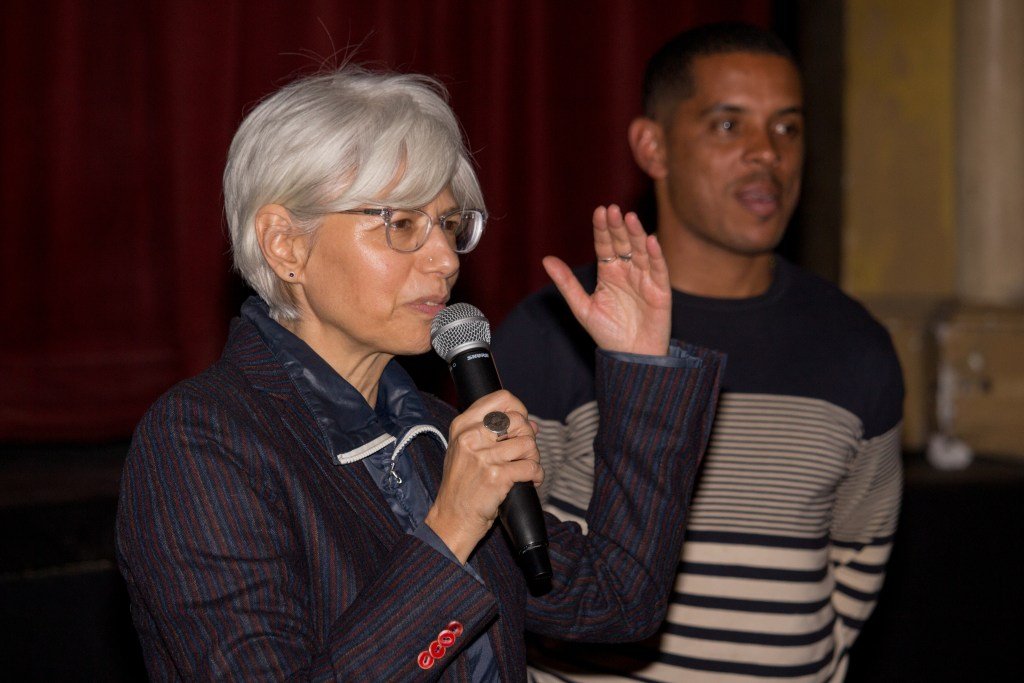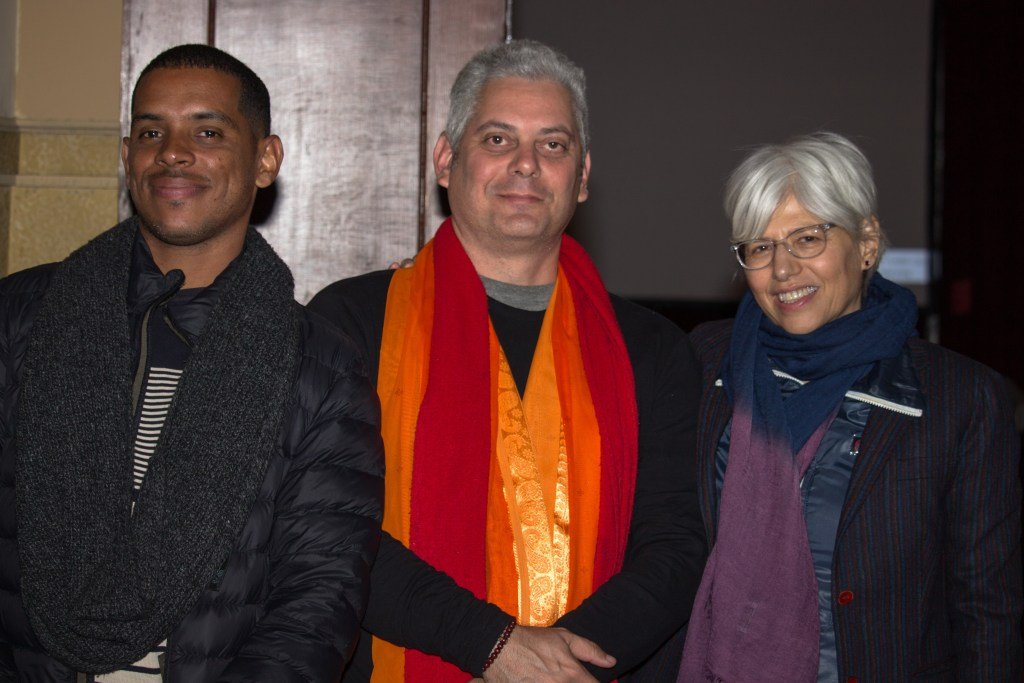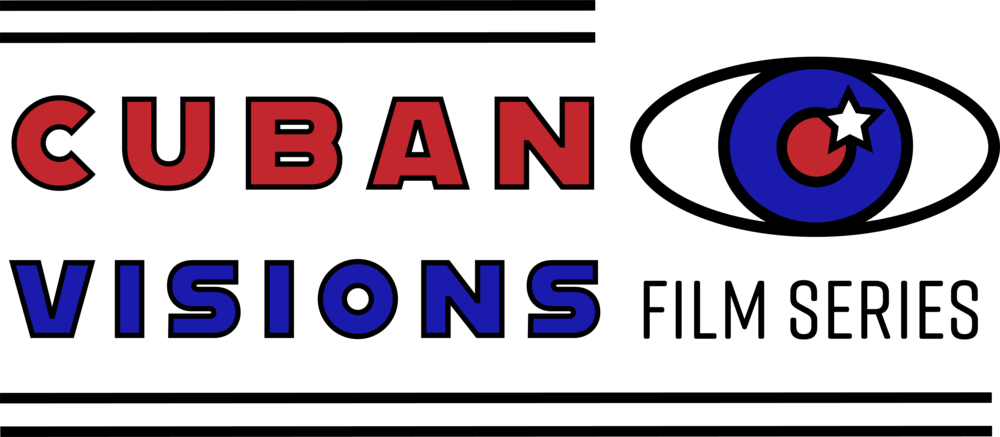Alexandra Halkin is the Director of Americas Media Initiative (AMI), a non-profit organization that works with Cuban filmmakers living in Cuba. Her work in Latin America goes back to 1998, when she founded the Chiapas Media Project, an award winning bi-national organization that has trained over 200 indigenous men and women in video production in Chiapas and Guerrero, Mexico. In 2004, Alexandra was awarded a Guggenheim Fellowship for the Latin American Indigenous Video Initiative (LAIVI) and in 2007 was awarded a Fulbright Scholarship for the Indigenous Audiovisual Archive (IAA) in Oaxaca, Mexico. She has produced four documentaries in Guerrero, Mexico and her work has been screened at film and video festivals worldwide. In 2010, she completed a short documentary, LIVING JUAREZ, which looks at the neighborhood of Villas de Salvárcar where 15 youths were murdered at a birthday party in January 2010.

Since January 2019, Alexandra has been programming the Cuban Visions Film Series, a new film series organized by AMI and Full Spectrum Features, presenting the work of Cuban filmmakers to Chicago audiences, providing a unique window into both early revolutionary and contemporary Cuban society. The bi-monthly series includes six programs at the Athenaeum Theatre in Chicago and features a diverse range of Cuban films including animation, short fiction, and documentaries, covering issues such as racial inequity, the Cuban economy, Cuban internationalism, Afro-Cuban identity, women’s rights, and more.
 Each of the screenings is followed by a conversation, with Cuban filmmakers, activists, journalists, and scholars. These thought-provoking and rarely seen Cuban films challenge U.S. audience’s long-held misconceptions about past and present Cuban reality. In the following interview, Alexandra answers questions about this series as well her in depth and yet, mostly unknown work in the field of Cuban film.
Each of the screenings is followed by a conversation, with Cuban filmmakers, activists, journalists, and scholars. These thought-provoking and rarely seen Cuban films challenge U.S. audience’s long-held misconceptions about past and present Cuban reality. In the following interview, Alexandra answers questions about this series as well her in depth and yet, mostly unknown work in the field of Cuban film.
Can you describe what is AMI and the work you have done as its director?
AMI was founded in 2010, and since then, we have been working nationally to bring the work of emerging Cuban filmmakers to diverse venues and audiences – from elementary schools in Baton Rouge to urban farmers in Detroit. In 2012, we organized our first Closing Distances/Cerrando Distancias Documentary tour that brought the Museum of Modern Art (MoMA) on their first visit to Cuba in coordination with ICAIC. Since then we have had four tours that have traveled to 14 towns in the Cuban provinces, screening films at local cinemas, video salas, art schools and UNEAC and had more than 1000 Cuban citizens in attendance. The films provoked critical and meaningful discussions with the audiences on global topics such as immigration, the Iraq War and racism, among others.
AMI has also been involved with the Muestra Joven, an important film festival that with the support of the ICAIC, promotes screenings and critical discussions around the work of young filmmakers. Since 2015, AMI has been providing a cash prize for documentaries in production at the Muestra’s Haciendo Cine pitch session. We have also brought documentary producers and filmmakers to present at the Muestra as part of our Cerrando Distancias tours.
Since 2011, AMI has invited 18 Cuban filmmakers to the U.S. Our first U.S. tour brought the community media project, TV Serrana to 13 U.S. universities across the country. AMI has distributed over 800 DVDs of Cuban independent and community media to more than 93 universities, as well as to individuals in the U.S. and Canada. And we now have 13 films in our Cuba DVD catalogue with the independent distributor Icarus Films in New York.

What motivated you to put together this complicated series with the participation of artists from Cuba at a moment like this?
I was invited to brainstorm about a film program last year by Full Spectrum Features (FSF), a non-profit based in Chicago. FSF is housed in a building, the Athenaeum Theatre that has a beautiful theater and the manager of the Athenaeum was interested in developing the space as a film venue. I suggested doing a year-long Cuban film series using film as a jumping off point to discuss larger issues of interest to a U.S. audience. There are many commonalities U.S. citizens share with their Cuban counterparts and film is an excellent bridge to understanding these shared experiences.
I also wanted to bring Cubans for post film discussions, and was pretty confident I could identify Cubans who had current U.S. visas, as I wanted to make an effort to bring Cubans living on the island, not just Cubans in the U.S. I also felt it was important at this moment in time to push back against the Trump Administration’s effort to isolate Cuba, which gets no where and helps no one. There have also been U.S. citizens who traveled to Cuba on People to People delegations between 2015 and 2018 (before the People to People delegations were ended by the Trump Administration), who have come back from those trips with lots of questions and an increased interest in Cuba. I thought the Cuban Visions series could answer some of those questions and give a Chicago audience a more profound understanding of the Cuban experience.
How did you select the topics for the screenings? Can you offer a brief description of each one of them? Racial Inequality; LGBT; Economics; Women Filmmakers; Revolutionary Aspirations and The Personal is Political? Why these topics?
The topics for the films came mostly from documentary films we either distribute through AMI or have access to with English subtitles, which cover topics of interest in both countries, that both countries are trying to grapple with and are critical to understand the current situation in Cuba.
Another important consideration for the topics was identifying scholars, activists and filmmakers who could be present for the post-screening Q&As and be able to provide insight and nuance to the conversations. Luckily, we were able to make this happen through our extensive on the ground network in Cuba and the U.S. For Racial Inequality and Class in a Changing Cuba, the first one of the series, we screened Canción de Barrio (Song of the Street), a film by Alejandro Ramírez Anderson, followed by a Q&A with journalist Mónica Rivero and Cuban-American scholar Odette Casamayor-Cisneros.
The second program was LGBTQ Politics and Gay Marriage, with the screening of four short films by young Afro-Cuban LGBTQ filmmaker Damián Sainz: Close Up; De Agua Dulce (From Fresh Water); Homenaje (Homage) and Batería (Bateria). The screenings were followed by a conversation with Sainz and LGBTQ activist and playwright Norge Espinosa.
For the third program in the series, Economics 101, we invited blogger and political commentator Harold Cárdenas to discuss La singular historia de Juan sin Nada (The Unique Story of Unlucky Juan), a film by Ricardo Figueredo Oliva.
https://www.youtube.com/watch?time_continue=26&v=lfqDPP7bshw
The fourth program, Emerging Women Filmmakers, where Zaira Zarza, founder and coordinator of platform Roots and Routes: Cuban Cinemas of the Diaspora in the 21st Century, discussed the current situation with women filmmakers in Cuba and the film Días de Diciembre (December Days), directed by Carla Valdés León, and Frágil (Fragile,) directed by Sheyla Pool.
https://vimeo.com/280178738
The two final programs coming up are Cuban Animations from the 1960s to today, Revolutionary Aspirations, with the participation of Ivette Ávila Martin and Julio César Guanche Zaldivar, and The Personal is Political, with the presentation of La música de las esferas (The Music of the Spheres), directed by Marcel Beltrán, followed by a conversation with the filmmaker.
https://vimeo.com/262732970
The goal of Cuban Visions is to provide a diverse range of topics to put up for discussion . Often times when Cuba is covered in the U.S. mass media it presents a very black and white situation with little grey. I think the grey, the nuance, is where we need to focus on. Otherwise, we are just replicating the same old distorted story. Cuba is an extremely complex place, there is a multiplicity of realities and that is what we are trying to get across with the Cuban Visions film series. I think the films included in the series, as well as the discussions framed by people who are either protagonists or important actors in these stories, contribute greatly to the conversations.
Cuban Visions is not being presented in Miami, NY or even the West Coast but in the Midwest. Who is the audience for the series and what general message you are trying to convey?
Chicago is the location for the series because as I explained earlier, I was offered this collaboration with FSP and the theater. And also it is kind of a test to see how much interest there really is in Chicago for this kind of programming.

Can you refer to the reception of the series? How has the audience reacted to the screenings and in the Q&A?
The reception to the series has been a mixed bag. We generally have had audiences between 40-50 people per screening. We’ve had support from organizations such as the Chicago Religious Leadership Network who have been sending out email blasts and promoting the series on Facebook as well as tabling at the screenings with information about challenging the U.S. embargo and travel opportunities to Cuba.
The Q&A’s have been interesting. People always have tons of questions, some off topic. What has been great is that all of our Cuban guests have been very articulate in unwinding complex issues so the audience can understand. People in the U.S. are accustomed to polarized opinions when it comes to Cuba: it’s either this or that, period. So hearing Cubans talk about Cuba from their own points of view creates a much more relatable reality.
What have been the greatest challenges when putting together this project?
It’s been hard to generate press attention because unfortunately Chicago still has some very provincial tendencies even though it likes to call itself a “global city.” We have had several radio interviews, most notably on WBEZ, Chicago Public Radio’s “Worldview” Program. This has brought in audience that most likely wouldn’t have heard about the series otherwise. Unfortunately “Worldview” has now been cancelled by WBEZ for dubious reasons so it may be difficult to get good radio coverage for the last two programs.
It’s also been extremely challenging to raise funds to support the series. Luckily through some personal contacts I was able to get support from two Chicago family foundations for the last three programs. I have to say last spring I wasn’t sure what we were going to do for funds… but in the end they came through! This is a general problem working with Cuba and being based in the U.S: there are very few funders willing to support work there.
The political climate is really unfortunate not only for Cubans but also for those working with Cuba. The reinstatement of sanctions by the current U.S. administration and the tightening of the embargo have had a chilling effect. So I just didn’t want to sit back and do nothing, be like OK we have to accept this because ultimately we don’t. There are always creative ways to make things happen, it just takes a lot of energy, patience and time. So that’s why Cuban Visions happened because I didn’t want to just accept the status quo of current US-Cuba relations.
How does the series reflect a new Cuba?
The vast majority of the films screened in the series are considered independent productions, not financially supported by the Cuban government. This isn’t exactly a new thing, these productions have been happening for a number of years now. Many of the films are looking at certain current or historical circumstances with a critical and questioning viewpoint. In some ways this is nothing new either, because Cuban fiction film has always functioned as a critique of Cuban society. I think the difference is the vast majority of the films in the series are documentaries and made by younger filmmakers.
Revolutionary Aspirations is curated by Julio Cesar Guanche and Ivette Ávila Martín, Cubans living in the island. Can you refer to the curatorial process, to what the audience can expect from this unique series, and the symbolic significance of such a collaborative undertake, as well as that of the series?
This program was curated in Cuba by Julio Cesar Guanche Zaldivar, law professor, historian and former Deputy Director of the International Festival of New Latin American Cinema (Havana Film Festival), and by award winning animator Ivette Ávila Martín. Revolutionary Aspirations looks at the history of the Revolution through the evolution of animation in Cuba. It includes ICAIC animations from the 1960-1980’s as well as recent independent productions. In order to get copies of the animations for review I worked through my producer in Havana, Jorge del Sol, who coordinated with Guanche and Ivette, as well as the ICAIC Animation Studios. The films had to be brought to the US by either a trusted friend or myself since the Internet in Cuba is too slow for to be able to upload the files. I’ve been working with my translator in Mexico City to get the films translated and we are laying in the subtitles here in Chicago. We will also be giving copies of the English subtitled animations to ICAIC for their archives. Ivette has written a text about the history of contemporary Cuban animation that will be made available to the audience at the screening on October 19th. None of this would have been possible without the relationships AMI has been able to build over the last 10 years in Cuba.
I’m proud we were able to pull this series together. I think all the Cubans who have participated so far have enjoyed the experience and their time in Chicago. And I know the Chicago audiences have enjoyed the films and gained crucial knowledge expanding their understanding of the Cuban reality. Unfortunately, in looking at future possibilities of inviting Cubans to present their work in the US, it seems very doubtful. The current U.S. Administration is making it almost impossible to obtain visas in a timely manner. So everyone looses, not just the Cubans who can’t get visas but the U.S. citizens who loose the opportunity to talk with Cubans, exchanging experiences and culture. Hopefully, the Cuban Visions Film Series has been able to make a slight difference.











